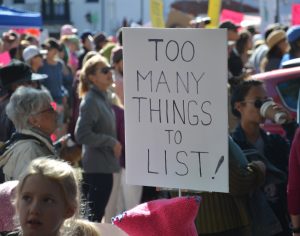Identity
 The entire canon of Western thought, from Aristotelian logic to George Boole (he of boolean arithmetic) to the divide-and-conquer approach of science, invites us to view and categorize the world according to its differences, not its similarities. A table is a table and a chair is a chair.
The entire canon of Western thought, from Aristotelian logic to George Boole (he of boolean arithmetic) to the divide-and-conquer approach of science, invites us to view and categorize the world according to its differences, not its similarities. A table is a table and a chair is a chair.
Language is the tool we use for this dissection. It is the framework within which we place all experience. And yet this cannot be the only way to understand the world. Before language was invented, say 100,000 years ago, we managed to live and survive in the world; we understood the world, but in a very different way. Yet that way must still exist within us, although eclipsed by language.
To know it, we must set aside language – a very difficult task. Meditation is one way to do this. For instance, zazen involves watching and counting the breath. Whenever a thought arises, start counting from one again. This is extraordinarily difficult, yet it demonstrates that attention without thought is possible. Yet what we find there remains there. We cannot bring it back and speak about it: it is, by definition, unspeakable.
Arthur Koestler coined the word “holon” to mean something that is complete in itself, yet also part of a larger whole. A human is composed of organ systems like the respiratory and digestive systems; each is constructed of cells, and so on, down to the quarks and leptons of physics. But individuals are also part of larger groupings: a species, a phylum, and life.
This multiple existence is hard to acknowledge.
So we are indisputably these larger groups at the same time as being our individual self, in the same way that a cell is indisputably human as the same time as it lives its life as a cell.
This is the realm in which we find the greater self, and to find it we must transcend the ego, not in the sense of denying it, but of not remaining attached to it.
Leave a Reply